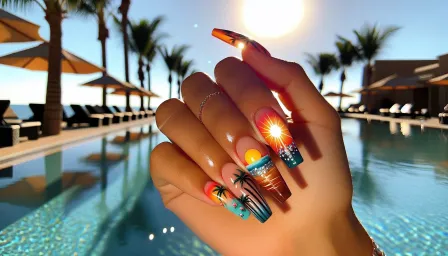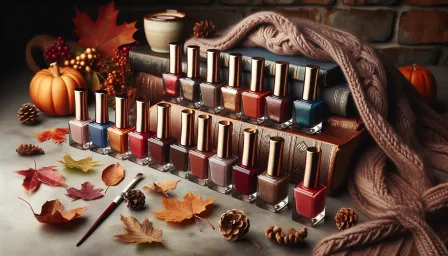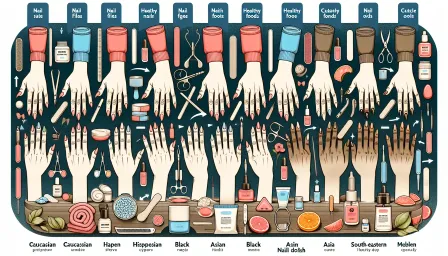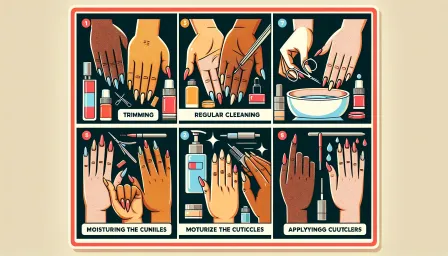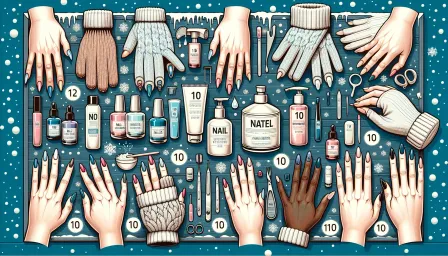Top 10 Tips for Nail Care for Sensitive Nails
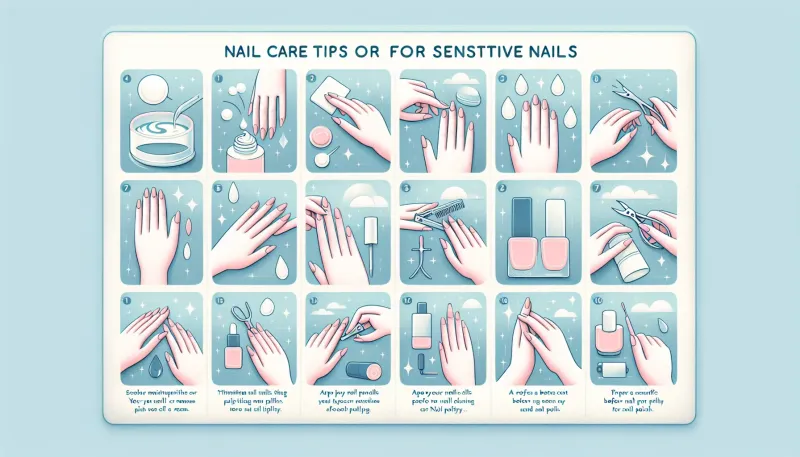
Discover the top 10 tips for nail care for sensitive nails. Learn how to maintain healthy, strong nails with our expert advice.
Having sensitive nails can be challenging, especially when you want to keep them looking healthy and polished. If you're struggling with nails that are prone to breaking, peeling, or discomfort, you're not alone. In this article, we will provide you with expert advice on how to care for sensitive nails, ensuring they remain strong, healthy, and beautiful.
Understanding Sensitive Nails
Sensitive nails are typically more prone to damage and discomfort due to various factors such as genetics, external environment, or underlying health conditions. Understanding the characteristics and triggers of sensitive nails is the first step toward effective care.
Top 10 Tips for Nail Care for Sensitive Nails
1. Keep Your Nails Hydrated
Hydration is crucial for maintaining nail health. Dehydrated nails are more likely to become brittle and break. Use a hydrating oil, such as jojoba or vitamin E oil, to nourish your nails and cuticles. Apply it daily, especially before bed, to allow the oil to penetrate deeply.
2. Avoid Harsh Chemicals
Exposure to harsh chemicals can weaken nails and exacerbate sensitivity. Opt for nail polishes, removers, and treatments that are free of harmful chemicals like formaldehyde, toluene, and dibutyl phthalate (DBP). Look for labels indicating "3-free" or "7-free" formulations.
3. Use Gentle Nail Products
Choose gentle nail products specifically designed for sensitive nails. Products with natural ingredients and nourishing properties can help maintain nail strength without causing irritation. Steer clear of aggressive polishing or filing techniques that might damage the nail bed.
4. Trim Your Nails Regularly
Regular trimming helps prevent nails from becoming too long, which can increase the risk of breakage. Use a sharp, clean nail clipper and cut your nails straight across to prevent ingrown nails. Avoid biting your nails, as this can lead to further sensitivity and damage.
5. Wear Gloves for Protection
Wearing gloves while performing household chores or gardening can protect your nails from harsh chemicals and physical damage. Gloves create a barrier, preventing exposure to elements that could dry out or injure your nails and cuticles.
6. Maintain a Healthy Diet
Nutrition plays a significant role in nail health. Ensure your diet includes vitamins and minerals essential for strong nails, such as biotin, vitamin E, zinc, and omega-3 fatty acids. Consider taking supplements if your diet is lacking in these nutrients.
7. Avoid Excessive Moisture
While hydration is vital, excessive moisture can weaken sensitive nails. Be mindful of prolonged exposure to water, especially hot water, which can strip the nails of natural oils. Always dry your hands and nails thoroughly after washing.
8. Be Cautious with Manicures
If you enjoy getting manicures, choose salons that prioritize hygiene and use high-quality, gentle products. Let your technician know about your sensitive nails so they can take appropriate care. Avoid acrylics or gels, which can be too harsh for delicate nails.
9. Avoid Using Nails as Tools
Your nails are not tools. Using them to open packages, scratch off labels, or perform other tasks can lead to breakage and exacerbate sensitivity. Use appropriate tools instead to preserve the strength and health of your nails.
10. Monitor Your Nail Health
Regularly inspect your nails for any signs of changes, such as discoloration, ridges, or persistent sensitivity. These could indicate underlying health issues that require medical attention. Early detection and treatment can prevent further complications.
Conclusion
Caring for sensitive nails requires a proactive approach and attention to detail. By following these top 10 tips, you can maintain healthy, strong, and beautiful nails despite their sensitivity. Remember, consistency is key, and making these practices part of your routine will yield the best results.
For more information on nail care and tips for maintaining nail health, feel free to explore additional resources or consult with a dermatologist or nail care expert.




